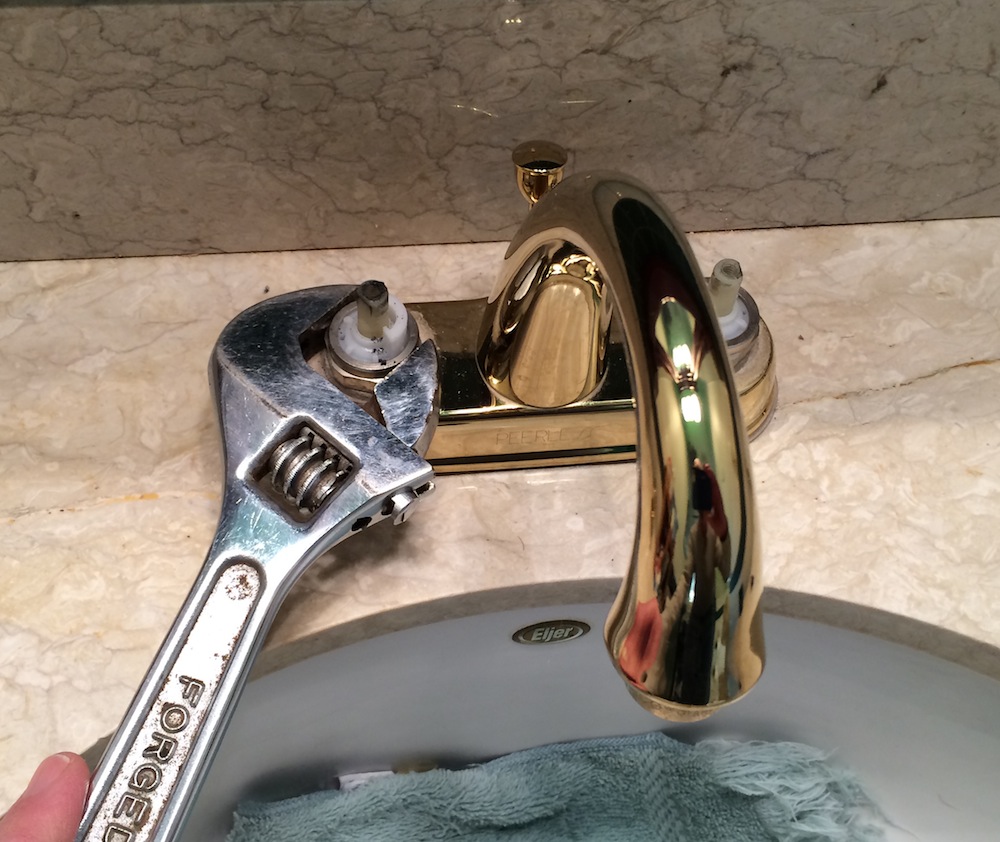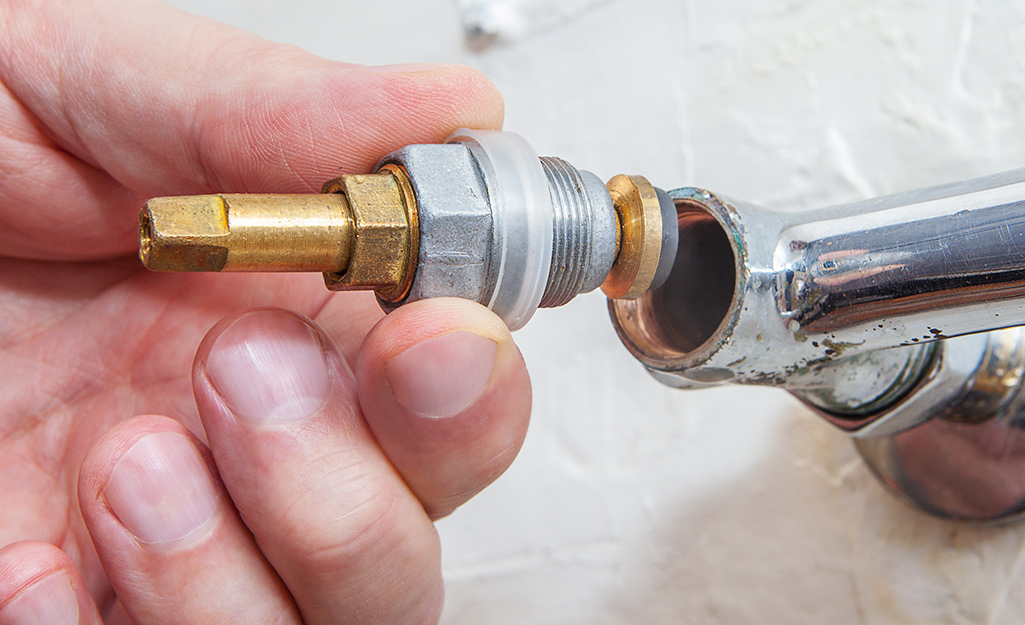Your Benefits of Correcting a Dripping Faucet
Your Benefits of Correcting a Dripping Faucet
Blog Article
We've encountered this great article on What Causes Leaky Faucets & How To Fix Them down the page on the web and concluded it made perfect sense to share it with you here.

Dripping faucets may feel like a small trouble, yet their impact goes beyond just the nuisance of the audio. From wasting water to sustaining unneeded monetary costs and health threats, ignoring a leaking tap can lead to various repercussions. In this post, we'll look into why it's crucial to address this common household issue promptly and efficiently.
Wastefulness of Water
Ecological Influence
Trickling taps contribute dramatically to water wastefulness. According to the Epa (EPA), a single faucet leaking at one drip per secondly can lose greater than 3,000 gallons of water each year. This not only pressures water sources but also affects ecosystems and wildlife depending on them.
Financial Expenses
Enhanced Water Expenses
Past the environmental influence, trickling faucets can inflate water bills considerably. The gathered waste in time translates into higher utility expenditures, which might have been avoided with prompt repair services.
Prospective Home Damage
Moreover, long term leaking can lead to harm to fixtures and surface areas bordering the faucet. Water buildup can trigger discoloration, corrosion, and also structural concerns if left ignored, resulting in added repair work costs.
Wellness Issues
Mold And Mildew and Mold Growth
The consistent existence of dampness from a leaking faucet produces a perfect setting for mold and mold development. These fungis not only endanger indoor air top quality but likewise pose health and wellness threats, especially for people with respiratory conditions or allergic reactions.
Waterborne Conditions
Stagnant water in leaking taps can become a breeding place for microorganisms and other microorganisms, raising the risk of waterborne illness. Pollutants such as Legionella microorganisms thrive in stagnant water, possibly leading to major ailments when consumed or inhaled.
DIY vs. Expert Repair service
Benefits and drawbacks of DIY Repair Work
While some might try to deal with a dripping faucet themselves, DIY repair work include their very own collection of difficulties. Without correct expertise and devices, do it yourself efforts can exacerbate the issue or result in incomplete repair services, lengthening the trouble.
Advantages of Employing an Expert Plumber
Employing an expert plumber makes sure that the underlying source of the trickling tap is attended to successfully. Plumbing professionals have the experience and devices to identify and repair faucet issues successfully, conserving time and decreasing the danger of additional damage.
Step-by-Step Guide to Fixing a Dripping Tap
Tools Required
Prior to trying to take care of a leaking faucet, collect the required tools, consisting of a flexible wrench, screwdrivers, replacement parts (such as washing machines or cartridges), and plumber's tape.
Typical Tap Issues and Their Solutions
Identify the kind of faucet and the particular issue causing the drip. Usual troubles include damaged washers, rusty valve seats, or malfunctioning O-rings. Refer to manufacturer guidelines or on-line tutorials for step-by-step guidance on fixings.
Safety nets
Regular Upkeep Tips
To avoid trickling taps, do regular maintenance such as cleaning aerators, inspecting for leaks, and replacing damaged parts promptly. Additionally, take into consideration setting up water-saving tools or upgrading to more effective components.
Value of Prompt Repairs
Attending to dripping taps as quickly as they're discovered protects against additional water wastefulness and prospective damages, ultimately conserving both water and money over time.
Influence On Residential Property Worth
Perception of Well-Maintained Building
Maintaining a property in good condition, including resolving maintenance problems like trickling faucets, enhances its viewed worth and worth among potential purchasers or tenants.
Influence on Resale Value
Features with well-maintained plumbing fixtures, consisting of taps, command greater resale values in the property market. Dealing with leaking faucets can add to a favorable impact during residential or commercial property assessments and arrangements.
Ecological Responsibility
Individual Payment to Conservation
Taking responsibility for fixing dripping faucets aligns with broader efforts toward water conservation and environmental sustainability. Every individual's actions jointly make a substantial influence on maintaining priceless sources.
Lasting Living Practices
By focusing on timely repair services and embracing water-saving routines, people contribute to sustainable living practices that benefit both present and future generations.
Conclusion
Addressing a dripping tap surpasses simple benefit; it's a vital step toward conserving water, lowering monetary expenses, and protecting health and property. Whether via do it yourself repair work or professional help, acting to repair dripping faucets is a small yet impactful means to promote liable stewardship of sources and contribute to a much healthier, a lot more sustainable future.
How to Fix a Leaky Faucet: Step-by-Step Repair Guide
A leaky faucet may seem like a simple annoyance, but if it's not fixed promptly, that leak could cost hundreds to potentially thousands. From water damage to mold, mildew, and high water bills, even a tiny leak can be catastrophic if left unattended. Damage like this can even affect the overall value of your home, so it's important to take the right approach for leaky faucet repair. You may need the help of a plumber in some cases, but we've got a few tips you can try on how to fix a leaky faucet before calling the pros.
Four Faucet Types
When you're learning how to fix a leaky faucet, the first step is knowing what kind of faucet you're working with! There are four common types.
Cartridge Faucets
Cartridge faucets come in one- or two-handled varieties. In one-handled cartridge faucets, hot and cold water combines in a single cartridge. In the two-handled versions, hot and cold water are controlled separately and mixed in the faucet.
Ball Faucets
Ball faucets have a single lever you push up and down to adjust the pressure and rotate to change the temperature. A slotted metal ball controls the amount of water allowed into the spout.
Compression Washer Faucets
They're the oldest type of faucet, but they're still used in many homes — especially older ones. Compression faucets have two separate handles that, when turned, raise or lower the washer that seals a water valve. This valve stops water from flowing through the faucet when it is turned off.
Disc Faucets
Disc faucets rarely need to be repaired due to their maintenance-free design. The water flow is controlled by two discs — the upper one raises and lowers against a fixed lower disc, creating a watertight seal. If your disc faucet starts leaking, you may need to replace the seals or clean residue buildup from the inlets.
Fixing a Leaky Faucet
Step 1: Turn Off the Water
Whether you're learning how to fix a leaky bathtub faucet or how to fix a leaky kitchen faucet, always turn off the water supply to your working area when you're fixing a leak. The last thing you want is a flood added to your list of things to fix.
Look for the shutoff valves below your sink or around the tub and turn them clockwise to stop the water flow. If your faucet doesn't have shutoff valves, you may need to turn off the water for the whole house. Check to make sure it's off by turning the faucet on. If nothing comes out, you're ready to start the repair.
Step 2: Take Apart the Faucet
How you disassemble your faucet depends on the type of fixture you have. You can use a flathead screwdriver to remove the caps on top of the handle or handles for cartridge and compression faucets. Inside, you should see handle screws. Unscrew these with a screwdriver to remove the handle.
Disc- and ball-style faucets will typically have an inlet screw near the handle, and removing that will reveal the interior of the faucet.
Detach the Valve Stem
For cartridge- and compression-style faucets, you'll see the inner valve stem or cartridge once you remove the faucet handles. If you have a compression faucet, unscrew the brass valve stem. If you have a cartridge faucet, pull out the cartridge. If your cartridge has been in place for a while, it may require some tools or extra force to remove it due to mineral deposits.
Examine and Replace Parts
Once you've removed the parts, check them out to confirm what needs to be replaced. You may see corroded rubber washers, O-rings, stems, or cartridges. On a ball-style faucet, check the seats and springs for damage.
If you need to repair a leaky disc faucet, check the inlet and seals on the lower disc.
Once you determine what parts must be replaced, visit your local hardware store. Bring the damaged parts with you to ensure you can purchase the correct components to replace them.
Clean Valves and Faucet Cavity
If you've removed a stem or cartridge, you may notice mineral buildup in the faucet's threads. Use white vinegar to clean the valve seat by soaking it for a few minutes, then scrub it away with a soft toothbrush and rinse with warm water. You can also clean the interior of the faucet in the same way.
Reassemble the Faucet
Once your faucet is cleaned and the required parts have been replaced, it's time to reassemble it. Put the pieces back together and slowly turn the water supply back on. Doing this slowly is crucial because too much initial water pressure can damage the new hardware you've just installed.
https://homewarranty.firstam.com/blog/how-to-fix-leaky-faucet

As a person who reads on Why Are My Faucets Dripping (And Can I Fix It Myself)?, I was thinking sharing that excerpt was beneficial. You should set aside a second to distribute this blog post if you enjoyed it. Thanks so much for your time invested reading it.
Report this page